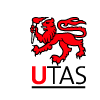Supervisor Roles
Clinical supervision requires rural health professionals to consecutively juggle a variety of roles. The following table attempts to highlight how the clinical supervision roles may be fulfilled in various ways, depending upon the task at hand.
| Practitioner |
Teacher |
Facilitator of Learning |
Assessor |
Clinical Supervisor |
| Centre of attention |
|---|
Concerned with getting the right things done to provide optimal health service. |
Concerned with teaching the student the things that are required to be done, and how to do them. |
Concerned with supporting the students learning in areas they have identified as important. |
Concerned with ensuring the students do things right. |
Concerned with helping students make the transition from observers to practice with safety for all involved.
|
| Priority |
|---|
Health service delivery. |
Immediate, here and now issues that need to be clarified. |
Long term objectives the student is working toward. |
Considers the immediate here and now issues as well as the overall performance of the student. |
Helps the student reconcile their current performance with future role requirements |
| Critical Analysis |
|---|
Reflecting upon and continually improving own knowledge, skills and attitude. |
Puts forward particular ways of doing or thinking about things. |
Challenges students to think carefully about things using ‘What?’ and ‘Why’ questions |
Challenges students to provide information about the underlying rationale for their thinking and actions using the ‘How?’ questions |
Encourages students to identify discord between their taken for granted world and their discipline or professional role constraints. |
| Temporal Considerations |
|---|
Deals with the here and now issues |
Teaches in terms of here and now context. |
Attempts to consider innovation, development and the impact of the future trends on education and learning. |
Thinks in terms of student performance in present time. |
Encourage students to think and reflect about past, present and future and tries to identify linkages through time. |
| Cultural Immersion |
|---|
Takes for granted the rural context in which professional practice is organised. |
Attempts to highlight the unique characteristics of the professional practice in the rural context. |
Challenges the way students make sense of their experiences in order to contextualise those experiences. |
|
Helps students to make meaning of rural experience in order to operate in a shared broader health professional network. |
| Expectations |
|---|
Expects high quality health service delivery to be maintained throughout the practicum. |
Expects students to develop in all areas of knowledge, skills and attitude as a result of the clinical experience. |
Expects students to identify and move toward a vision |
Expects students to fulfil their learning objectives in some way. |
Expects the university to support them as they articulate the shared vision in their health care agency and rural context. |
It is important at the beginning of a rural placement that student and supervisor have a clear understanding of the roles that they will both take. Here’s an example from a supervisor reflecting on unclear role boundaries:
The student was lovely and was quite homesick. When it came to the last day the student told me that he had a booked a plane back home and I would have to complete the student report, student self-assessment papers and print off the final draft of his assignment so that I could then submit them to the uni. I agreed because he wanted to get home and didn’t have time. I’m not sure why I agreed and then the lecturer rang to ask why I had completed the self-assessment papers and not the student.
Teaching and Learning roles
Teaching and learning are considered to be key concepts within supervision. The concept of teaching conjures up images of supervisors assuming an active role in the students learning process. It is therefore important to understand your personal teaching style and various learning styles. While this is true to some extent, students should be actively engaging in learning. There are many ways to promote and understand active learning as a supervisor.
|




